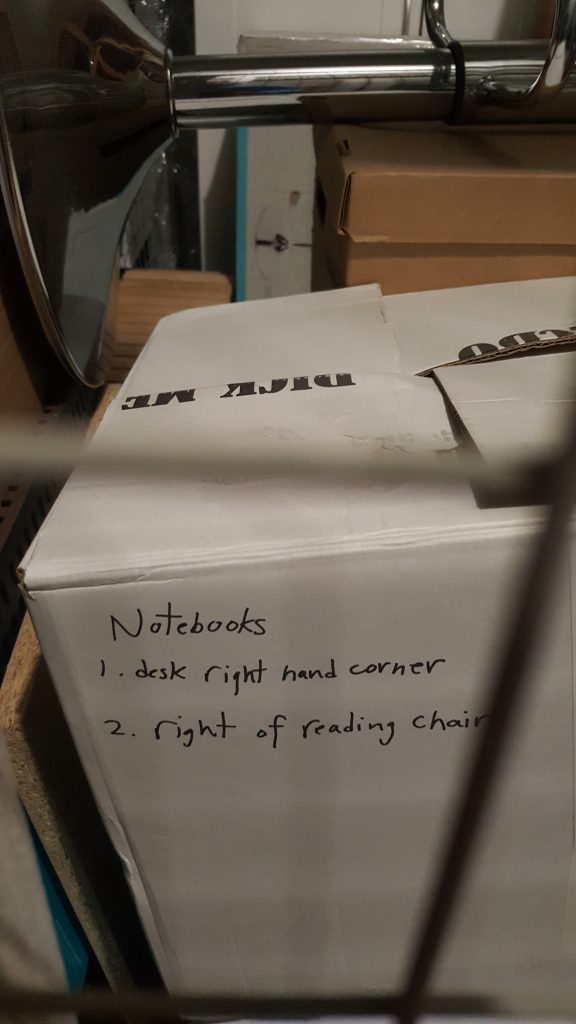While retrieving something from storage, I happened to notice a box in my neighbor’s cage. I read the label and instantly experienced three different, but distinct emotions.

- As a records and information management (RIM) professional, I inwardly groaned. Nobody would ever find anything in that box. Or even think to open it with such a cryptic description.
- Also as a RIM professional, I chuckled! I can still recall some of the worst box names I ever saw. My favorite was “From the 5th drawer in the cabinet behind Nicki’s desk”.
- As a fellow human just wanting to get some stuff in storage, I nodded compassionately and with understanding. Before I worked in RIM, I labeled my boxes the same way. Years after I had moved, I found boxes of books at my mother’s house labeled with similar descriptions, such as “books from the bottom shelf,” “books from the 4th shelf,” etc. At the time of packing, the contents of each shelf was most memorable by the location. Years later, the description was meaningless.
Why Labeling is so Important
To people who don’t work in my profession, I probably seem uptight and anal about labeling. I can understand this perspective. Similar to how I felt when I packed up my bookcase, the box descriptions were for me. I would always remember them because it was my system. However, labels are one of the primary ways we find things easily. This includes other people and our future selves.
In my field, we do a lot of records retrievals. Sometimes the retrievals are for documents created decades earlier. The descriptions matter. A lot. Trust me. Sometimes we would search for hours (or days) to find the right documents because they were labeled with poor descriptions like “Jimmy’s important stuff,” or “Planning misc.”
Tips for Creating Meaningful Labels
When creating meaningful labels that will still resonate years later, content and context count.
Be concise – focus on content and contextual keywords that describe your items
Be clear – write descriptions that make sense at the time and for the future. For example, instead of a random location, like “the cabinet behind Nicki’s desk”, use an address. Write out acronyms! You think you will always remember what they stand for, you won’t.
Avoid using the word “miscellaneous” or “misc.” or any other form of it. You think you know what this will mean later, you won’t.
